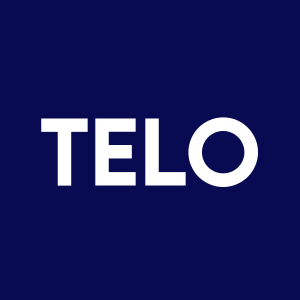Telomir Pharmaceuticals Reports In Vitro Data Supporting the Potential of Telomir-1 as a First-in-Class Epigenetic Therapy Influencing DNA Methylation Pathways in Cancer, Aging, and Age-Related Diseases
Rhea-AI Summary
Telomir Pharmaceuticals (NASDAQ:TELO) has announced new in vitro data for its lead drug candidate, Telomir-1, revealing its potential as a first-in-class epigenetic therapy. The drug demonstrates potent inhibition of UTX (KDM6A), an enzyme crucial for DNA methylation and gene regulation.
The studies, conducted by Eurofins Discovery, show that Telomir-1 can effectively block multiple epigenetic enzymes including FBXL10, FBXL11, and JMJD3, while maintaining selectivity by not affecting GCN5L2. The drug also exhibits low-level inhibitory activity against Tankyrases, potentially disrupting cancer growth pathways without causing telomere-related toxicity.
This breakthrough suggests Telomir-1's potential applications in treating cancer, autoimmune disorders, neurodegeneration, autism spectrum disorder, metabolic dysfunction, and age-related diseases by resetting faulty DNA methylation patterns and restoring proper gene control.
Positive
- Novel mechanism of action targeting previously 'undruggable' UTX enzyme
- Demonstrated ability to reset multiple faulty DNA methylation patterns
- Selective profile suggesting better safety margin than existing epigenetic drugs
- Potential broad therapeutic applications across multiple diseases
- Showed telomere elongation in Werner Syndrome aging model
Negative
- Still in preclinical stage with no human trial data
- Results limited to in vitro studies only
- Complex mechanism of action may require extensive safety validation
News Market Reaction 25 Alerts
On the day this news was published, TELO declined NaN%, reflecting a moderate negative market reaction. Our momentum scanner triggered 25 alerts that day, indicating elevated trading interest and price volatility. Trading volume was exceptionally heavy at 88.9x the daily average, suggesting significant selling pressure.
Data tracked by StockTitan Argus on the day of publication.
In vitro findings reveal Telomir-1's dual action: targeting DNA methylation switches and cutting into the Wnt "fuel line" that drives cancer growth.
MIAMI, FLORIDA / ACCESS Newswire / August 28, 2025 / Telomir Pharmaceuticals, Inc. (NASDAQ:TELO), a preclinical-stage biotechnology company developing therapies that target the root mechanisms of cancer, aging, and age-related diseases, today announced new in vitro results that expand understanding of its lead drug candidate, Telomir-1.
In studies conducted by Eurofins Discovery, Telomir-1 was shown to potently inhibit UTX (KDM6A), an enzyme that acts like an "eraser" of chemical tags on DNA packaging proteins. These tags, known as DNA methylation and histone marks, are part of the body's system for deciding which genes are turned on or off - much like switches on a circuit board.
When UTX activity is abnormal, it can silence protective genes and activate harmful ones, a pattern commonly seen in cancer, autoimmune disease, and neurodegeneration. Beyond cancer, UTX has also been linked to the biology of aging itself. Studies show that UTX influences stem cell renewal, reprogramming, and differentiation - meaning it helps control how effectively tissues can repair themselves as we age. UTX works in close connection with DNA methylation, and when this coordination breaks down it can lead to epigenetic drift - the gradual loss of proper gene regulation that occurs with aging and underlies many chronic diseases, including cancer, autism spectrum disorder, neurodegeneration, and metabolic dysfunction.
Because UTX has long been considered undruggable, Telomir-1's ability to block it is a major step forward. By doing so, Telomir-1 may help reset faulty DNA methylation patterns, restore proper gene control, support stem cell function, and counteract age-related epigenetic drift - reawakening the body's natural defenses against both disease and decline.
"Everything from cancer to aging to autism has been linked to faulty DNA methylation. Telomir-1 is capable to jointly reset several of those methylation patterns - which could make it one of the first drugs to address the root biology driving so many diseases," said Erez Aminov, CEO of Telomir.
Extending the Epigenetic Reset Profile
As previously reported, Telomir-1 was also shown to inhibit other faulty epigenetic enzymes that play critical roles in DNA methylation, gene regulation, cancer, neurodegeneration, metabolic dysfunction, inflammation, and aging:
FBXL10 (KDM2B) - Frequently overactive in aggressive cancers such as leukemia, breast, and pancreatic, where it allows tumors to maintain "stem-like" properties that drive relapse and treatment resistance. FBXL10 also influences DNA methylation dynamics and is linked to metabolic and inflammatory pathways.
FBXL11 (KDM2A) - Elevated in lung, gastric, and ovarian cancers, where it helps tumors grow and evade immune detection. FBXL11 regulates chromatin and DNA methylation patterns and has also been linked in the literature to autism spectrum disorder and glucose control dysfunction, underscoring its role in both cancer and metabolic disease.
JMJD3 (KDM6B) - A major regulator of inflammation and tumor progression, overexpressed in prostate, glioma, and ovarian cancers. By altering histone marks that interact with DNA methylation, JMJD3 fuels metastasis and helps cancers escape immune attack. Beyond oncology, JMJD3 drives chronic inflammation in autoimmune and neurodegenerative diseases such as lupus and Alzheimer's, by switching on cytokines like IL-6 and IL-4.
In those earlier studies, Telomir-1 also reactivated silenced tumor suppressor genes such as STAT1 and TMS1 in prostate cancer models by reversing abnormal DNA methylation, providing functional evidence of its ability to reset faulty gene programs.
Taken together, these findings - now strengthened by Telomir-1's new UTX data - support its emerging profile as a broad epigenetic reset therapy that may:
Help reawaken tumor suppressor genes (STAT1, TMS1).
Block cancer's growth enablers (FBXL10/11).
Dial down inflammation (JMJD3/UTX).
Support more youthful patterns of gene regulation across multiple disease pathways.
Selectivity Advantage
Importantly, Telomir-1 did not show any activity against GCN5L2 (KAT2A), a broad acetyltransferase enzyme, whose inhibition is associated with widespread toxicity. This selective profile may allow Telomir-1 to achieve its effects with a cleaner safety margin than many existing epigenetic drugs.
Dr. Itzchak Angel, Chief Scientific Advisor at Telomir, added "UTX and JMJD3 have long been labeled undruggable despite their central role in cancer, inflammation, and aging. The fact that Telomir-1 engages both enzymes with high potency, while sparing opposing targets such as GCN5L2, is a significant mechanistic breakthrough. It highlights Telomir-1's potential to reprogram gene control selectively and safely."
Added Anti-Cancer Synergy: Cutting Off Cancer's Fuel Line - With a Safety Advantage
Telomir-1 also demonstrated low-level inhibitory activity against Tankyrases (PARP5A and PARP5B). Tankyrases regulate the Wnt/β-catenin pathway - one of the body's key growth-control circuits that cancers often hijack as a "fuel line" for unchecked growth and treatment resistance.
Unlike potent Tankyrase inhibitors, which can cause excessive telomere shortening and systemic toxicity, Telomir-1's modest Tankyrase inhibition may provide just enough activity to cut off cancer's fuel line without disrupting healthy telomere biology.
Importantly, previously reported results in a validated Werner Syndrome accelerated-aging model showed that Telomir-1 significantly elongated telomeres beyond healthy levels while also reversing abnormal DNA methylation, restoring youthful gene regulation, and resetting the body's epigenetic clock. This distinction reinforces Telomir-1's differentiated safety profile - demonstrating that, unlike other Tankyrase-targeting drugs, it may protect and lengthen telomeres rather than shorten them.
Why This Matters and Potential Implications
The implications of this mechanism are broad:
Cancer: May help reawaken tumor-fighting genes and inhibit pathways that drive proliferation, metastasis, and resistance - while safely tapping into Wnt/Tankyrase signaling to cut off cancer's "fuel line."
Autoimmune & Inflammatory Disorders: May help calm runaway immune responses by dialing down inflammatory cytokines such as IL-6 and IL-4.
Neurodegeneration: May help reduce harmful neuroinflammation and restore balance in brain-related gene programs relevant to Alzheimer's and other CNS disorders.
Autism & Neurodevelopment: Abnormal DNA methylation patterns have been associated with autism spectrum disorder, and Telomir-1's inhibition of FBXL11 - a methylation-linked enzyme tied to neurodevelopment - suggests potential to help restore healthier gene regulation in ASD and related conditions.
Metabolic Dysfunction: May help improve glucose control and insulin sensitivity in type 2 diabetes by rebalancing metabolic gene networks.
Healthy Aging: By shifting gene programs back toward youthful patterns - and extending telomeres in vivo - Telomir-1 may one day support healthier aging and potentially aspects of age reversal.
Cautionary Note Regarding Forward-Looking Statements
This press release, statements of Telomir's management or advisors related thereto, and the statements contained in the news story linked in this release contain "forward-looking statements," which are statements other than historical facts made pursuant to the safe harbor provisions of Section 27A of the Securities Act of 1933, as amended, and Section 21E of the Securities Exchange Act of 1934, as amended. These risks and uncertainties include, but are not limited to, the potential use of the data from our studies, our ability to develop and commercialize Telomir-1 for specific indications, and the safety of Telomir-1.
Any forward-looking statements in this press release are based on Telomir's current expectations, estimates and projections only as of the date of this release. These and other risks concerning Telomir's programs and operations are described in additional detail in its Annual Report on Form 10-K for the fiscal year ended December 31, 2024, which are on file with the SEC and available at www.sec.gov. Telomir explicitly disclaims any obligation to update any forward-looking statements except to the extent required by law.
Contact Information
Helga Moya
info@telomirpharma.com
(786) 396-6723
SOURCE: Telomir Pharmaceuticals, Inc.
View the original press release on ACCESS Newswire







